Does one really need to spend a lot of money on a pair of floor standing loudspeakers in 2024 to create a great sounding system? I’m not so sure that is true anymore.
Having listened to a lot of loudspeakers over the past 25 years, there have been only a handful over $5,000 from manufacturers like DeVore Fidelity, Dynaudio, Magnepan, MartinLogan, and DALI that made me want to bite.
Larger speakers are designed to recreate a full-range sound that delivers greater scale and low end impact; not to mention superior dynamic response.
But is that always the case? And how many people have the space for such large loudspeakers?
DALI has a number of loudspeakers such as the KORE and EPIKORE 11 that can deliver that level of presence and sound quality but we are talking about an investment of $110,000 for the flagship and $50,000 for its smaller sibling.
Both of those loudspeakers require a similar level of investment in the electronics to make thing sing.
I would sooner spend $10,000 on a DALI Phantom 3.1 In-wall system for music and movies having been afforded the opportunity to listen to all three of them over the past 12 months.
And that’s the really intriguing about DALI — some of their best products for the money can be found at the bottom of the range and their CI Phantom series.
The Danish manufacturer is one of the largest manufacturers of loudspeaker cabinets in the world and makes almost everything in-house; including the screws and bolts that hold everything together.
Because of their long-term investment in driver technology, they are also able to pass on all of those aforementioned benefits to the consumer.
The Oberon 5 have been available for a few years but they continue to sell well and we understand why.

They are relatively compact two-way towers, measuring 33 inches high and 13 inches wide.
DALI have proven that they know how to build inert and beautiful cabinets; the Oberon 5 is made from MDF and available in four finishes; white, dark walnut, light oak, and black ash.
The driver complement harkens some comparisons to the somewhat larger Q Acoustics 3050i; the Oberon 5 use a pair of 5 inch mid/woofers and the company’s trademark 1.14 inch soft dome tweeter.
A single-wired two-way crossover is also used and the speakers do not offer a very difficult load; a nominal impedance of 6 ohms and 88dB/W/m sensitivity rating.
Very much like the Q Acoustics 5040, these need some space from the wall behind them and are smoother sounding when pointed straight ahead. Angling these in towards your listening chair provides no real benefit.
The trademark DALI top end is very present with a lot of energy and detail, but you will not have to worry about any hardness unless your amplifier is tilted that way as well.
The low end is punchy and rather dynamic sounding considering the size of the drivers and cabinet, but these are not bass monsters.
What really sells us on these loudspeakers is the expressive midrange that takes vocals to another level in this price range.

Pros: Expressive sounding midrange, punchy mid bass and lower midrange, sound larger than they look, excellent build quality and value for the money
Cons: Better suited for small to medium-sized rooms, treble is sensitive to partnering equipment, need a high quality amplifier to really show off just how good they are
Where to buy: $1,300/pair at Amazon
Unlimited Power?
One of quirks of the Oberon 5 is that they require more power than one might expect; and that might frustrate some who plan on using them in small to medium-sized rooms.
They also sound much larger than they look; although I would not dismiss the concept of adding a subwoofer if you plan on using them in a larger room or in the context of a home theater system.
DALI is distributed in North America by Lenbrook; the Toronto-based company that owns NAD, PSB Speakers, and Bluesound.
Even if Lenbrook did not distribute NAD and DALI, I would still recommend one of their amplifiers for a myriad of reasons; tonal balance, connectivity options, and value for the money.
The Oberon 5’s top end requires a system that can tame it somewhat. Not kill it but soften the edges.
NAD C 3050

In 2022, NAD Electronics introduced the Limited Edition C 3050 LE Integrated Amplifier of which only 1,972 were made (an homage to NAD’s founding in 1972) and as expected, they sold out very quickly.
For more details, read our previous report: NAD Celebrates 50 Years With New C 3050 LE Vintage Amplifier.
As a follow-up, NAD has announced the C 3050 model that offers similar sonics but without some of the modules that were included with the C 3050 LE.
Just like the C 3050 LE, NAD draws upon classic 1970s industrial design while internally incorporating a modern HybridDigital UcD output stage and high-performance Texas Instruments PCM5242 differential DAC.
This combination is intended to deliver excellent detail, immersive three-dimensionality, and wide dynamics. With NAD’s HybridDigital UcD amplifier technology, the C 3050 delivers 100 Watts per channel of continuous power and 135Wpc of instantaneous peak power.
Dual VU meters, push-button input selectors, a walnut-finished vinyl-clad cabinet, and a dark grey front panel displaying the original New Acoustic Dimension logo in its 1970s cursive typeface seamlessly blend past and present.

The C 3050 also features NAD’s MDC2 future-proofing technology. By installing an optional module at extra cost into one of two MDC2 expansion slots on the rear panel, listeners can add additional capabilities such as BluOS high-resolution multi-room streaming and Dirac Live room correction.
The $1,799 version of the C 3050 includes the latest card which supports both.
BluOS supports high-resolution audio up to 24-bit/192kHz, with MQA decoding and rendering capability.
The MDC2 BluOS-D module also allows for playback from a personal library and thousands of internet radio stations. With the MDC2 BluOS-D module installed, the C 3050 can be part of a whole-home music system with as many as 64 zones.
The MDC2 BluOS-D supports Spotify Connect and Tidal Connect, so users can cue up music in the apps for those services, then transfer playback to the C 3050.
Support for Apple AirPlay 2 allows streaming to the MDC2 BluOS-D from any app on an iPhone, iPad, or Macintosh computer.
Playback by voice is possible using Amazon Alexa, Google Assistant, or Apple Siri.
Advanced bidirectional aptX HD Bluetooth connectivity allows users to stream directly to the MDC2 BluOS-D from a smart device, or stream audio from the C 3050 to a pair of wireless headphones.
C 3050 includes several input options. This includes analog and digital inputs as well as ultra-low-noise MM phono input for turntable connection.
In addition, HDMI eARC is included which isn’t always available in two-channel amplifiers.
Turntable?

The C 3050 only offers a MM phono stage, which will be fine for most listeners unless they want to use a low output MC cartridge. You can get away with a high output MC like the Sumiko Blue Point No. 3 but one will need to turn the volume up a few clicks to really make it sing.
The table is a very easy pick for $1,000.
The Pro-Ject Debut PRO is the natural competitor to the Rega Planar 3; one of the most popular and best-selling audiophile turntables of the past 30 years and having spent considerable time with both — it’s starting to look like a very different race.
Both turntables are the best options at $1,000 and you really can’t go wrong purchasing either one. The Rega sounds slightly quicker; agile might be a better way of describing it — but that’s where the race ends for me.
The Debut PRO is better at everything else.
There are some similarities between the Pro-Ject Debut Carbon EVO and the PRO but the differences that make the Debut PRO $500 more are not small and there is a wide gap in their sonic performance.
Not Grand Canyon wide — more like Evil Knievel Snake River wide.
The Pro-Ject Debut PRO Turntable extends the tradition of the Debut collection with a new striking design, featuring a satin black and brushed-nickel color scheme that really makes the table stand out. Pro-Ject is not offering different color options for the Debut PRO so those looking for a Ferrari yellow finish or forest green are out of luck.
In a departure from the other turntables in the lineup, the new Debut Pro features an all new 8.6” tonearm that features a one-piece carbon fiber wrapped aluminum arm tube for excellent rigidity and reduction of resonance.
One of my biggest complaints about older Pro-Ject Debut turntables was the construction quality of the arm and how it felt during operation; I suffer from a slight tremor after a serious medical event in 2009 and I was always nervous operating them due to the weight and how loose it always felt in my hand.
A heavy-duty, nickel-plated machined aluminum bearing block ensures the tight tolerance tonearm bearings move freely, allowing the tonearm to track precisely across the entire surface of the record.
The new arm feels far more rigid and I did not suffer the same level of anxiety in daily operation. I do prefer the head shell hook of the Rega tonearms which are easier for my large fingers to use but Pro-Ject has designed a much better tonearm for the Debut PRO that worked flawlessly.
The Debut PRO also features a die-cast aluminum platter with integrated TPE damping that is a much higher grade platter than what Pro-Ject has offered in the past.
I’m a bigger fan of die-cast aluminum platters than glass ones and I think Pro-Ject has a superior product than Rega in that regard; the sound has greater density to it and I found that once I substituted a cork platter mat for the supplied felt one, music had greater presence overall and the bass impact was much firmer with all genres of music.
In another new change, the tonearm height and azimuth are now both adjustable, allowing for the use of a wider range of cartridges. The Sumiko Rainier phono cartridge is included with the Debut PRO and is pre-mounted and precision-aligned at the factory.
Switch to the Blue Note No. 3 if you want a cleaner sounding presentation with more detail.
Compared to the Rega Planar 3, the Debut Pro is a much richer sounding deck with slightly less energy from a pace perspective. Rega puts a lot more emphasis on timing and pace, but also at the expense of midrange warmth and low end impact.

Final Thoughts
This is not one of those systems that will tickle the gear fetishism of your audiophile friends; the Danish industrial design of the DALI is simple and clean and the retro feel of the NAD amplifier will make your “friends” wonder why you went with an amplifier from 1976.
The Pro-Ject turntable adds some modernity to this $4,500 system which is rather ironic to say the least.
The expressive nature of the Oberon 5 is balanced perfectly by the darker sounding NAD; the overall system will have more power and dynamic capabilities than you might expect for the asking price.
The NAD is designed to handle your changing listening habits; which can include adding a subwoofer and CD player. This could be a 2.1 system for music and movies that will be with you for the long haul.
A Danish delight that didn’t crush your bank account?
You better believe it.
Tip: Continue reading more Audiophile System Builder articles.




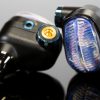
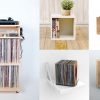


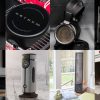


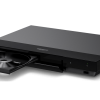
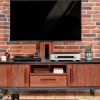







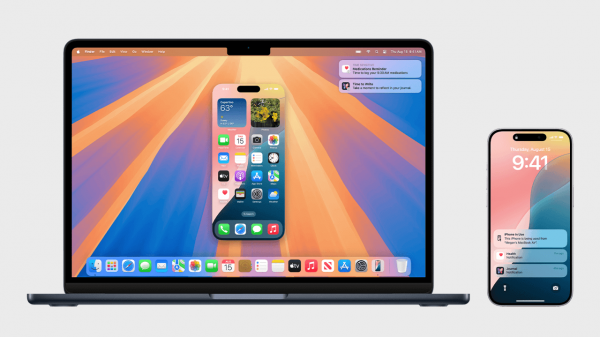



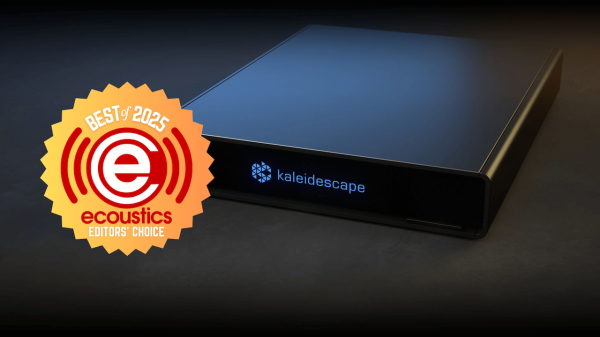
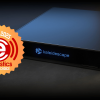
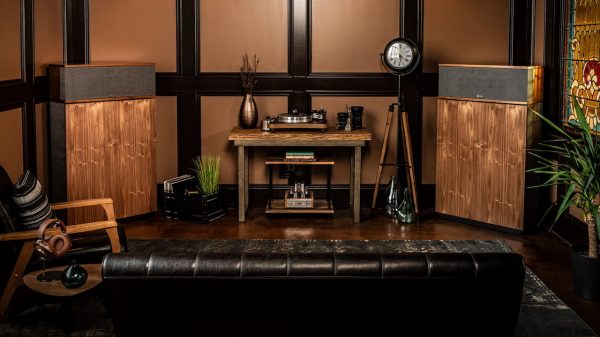
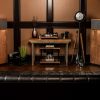
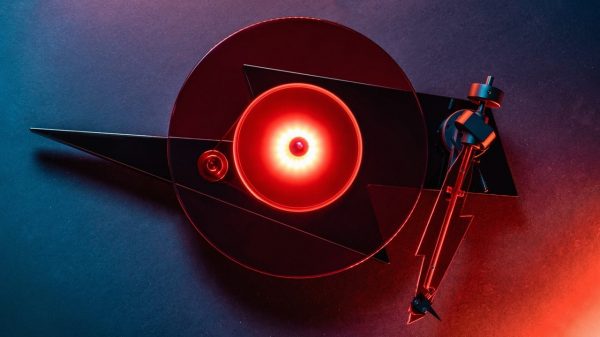
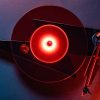

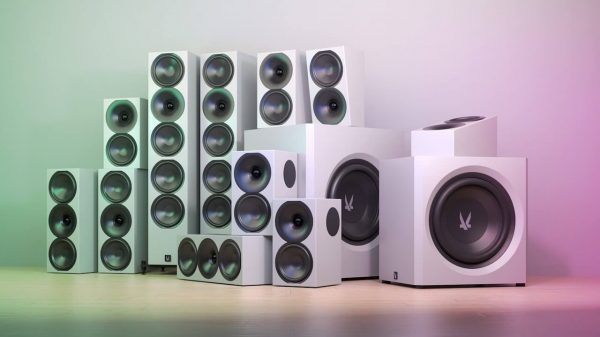
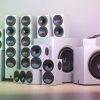











Mike Cornell
January 23, 2024 at 2:08 pm
I heard the Oberon 5’s for the first time and paired with the 3050 at NAD’s vintage listening sessions at Bay Bloor Radio back in the fall and was quite impressed. (although, to be honest, I would have preferred to hear the 3050 with PSB’s Passif 50’s and perhaps a vintage inspired turntable (Pro-ject Classic?) rather than Tidal streams for a true vintage experience!) They are definitely on my shortlist of speakers to consider.
Ian White
January 23, 2024 at 2:24 pm
Mike,
The DALI are better. And a superior value for the money. I’ve had a chance to listen to the Passif 50’s and found them a tad sterile. The DALI has a hotter sounding treble, but the 3050 tames that rather well.
Best,
Ian White
Steve
November 26, 2024 at 12:09 am
Will the Oberon 5 pair well with the Marantz Model 30? I have the Cinema 50 with the Oberon 5 5.1 system and it sounds great for movies but music, not so much. I am thinking of adding a stereo amp.
Rollerdog
January 24, 2025 at 5:34 pm
How would the Dali’s do with Vincent integrated amps such as the sv-500
Mike Cornell
January 23, 2024 at 2:55 pm
Thanks, Ian! Haven’t heard the Passif 50’s but I think they are a bit overpriced and over my budget to boot. The Dali’s really impressed and I almost pulled the trigger on them when Bay Bloor had them on sale for 1299 cad over the holidays. Alas, my system is in a bit of flux right now as I’m trying to simplify and may be going with an NAD C375bee integrated which hopefully would be a good match with the Dali’s as well.
Ian White
January 25, 2024 at 12:37 am
Mike,
DALI/NAD were so happy with the article that I have 2 new DALi speakers coming and 2 NAD amplifiers. The DALI definitely needs some power and top end smoothness from the amplifier. The treble is so expressive and detailed that it can be bit much with the wrong amplifier.
Best,
Ian
Asa
January 23, 2024 at 7:19 pm
Thanks for highlighting more affordable, yet audiophile-quality speakers/equipment. Any plans to review this company’s offerings?
https://arendalsound.com/ – it seems like they operate in a similar space.
Tan Lai Seng
January 24, 2024 at 5:02 am
I’m drawn here because of first/top photo the speakers with Thule amp,tuner & CD player. Are they still working? Mine amp CDP faulty irreparable
Neil
January 24, 2024 at 10:01 am
Hi Ian
I’ve been looking at the Oberon 5 for a while now as I have a smaller room, apart from the NAD do you have any other amp recommendations that you think could work well? I already have a streamer so I wasn’t looking for an all in one.
Many thanks
Neil
Ian White
January 25, 2024 at 12:35 am
Neil,
Rega and Cambridge Audio. The Cambridge CXA81 or the Rega ELEX MKiV.
Best,
Ian White
Neil
January 25, 2024 at 9:43 am
Hi Ian
That’s prefect, they are both on my shopping list.
Thanks again
Neil
Ken
January 24, 2024 at 2:25 pm
My system … Dali Oberon 5’s
Rotel CD 14 MK 2 Panasonic
DVD UB420 Cyrus 7 amp plus PSX and i love it
Ian White
January 25, 2024 at 12:31 am
Ken,
I like it. Is the tonal balance on the cooler side?
Best,
Ian White
Philip clarke
January 28, 2024 at 8:41 pm
I have my Oberon 5s with a dennon dra800h and dennon Dp 300f with ortofon blue
Love it have to turn volume up when use turntable
Great speakers
Giacomo
March 5, 2024 at 11:05 am
Hi Ian
I’m seriously thinking of buying the Dali Oberon 5, and was thinking of pairing it with the Rotel A12MKII? Is this a good match? or are there better solutions? I like controlled and dynamic low end. Thank you
Terra
March 6, 2024 at 8:14 pm
“One of quirks of the Oberon 5 is that they require more power than one might expect; and that might frustrate some who plan on using them in small to medium-sized rooms”
Well, allow me to disagree with this statement.
I have these speakers for over three years in a room of only 14 square meters, driven by a Marantz PM5005, one with only 40W/channel.
And they sound flawless, I don’t need to turn up the volume even a quarter to make it sound loud enough to make me wonder if the neighbors aren’t already disturbed.
On the contrary, they are speakers very easy to drive, by most amplifiers, and also,they are speakers recommended for small and medium rooms, as the technicians from Dali told me, in the discussions with them, when I were in visit at Norager.
Jakey
April 8, 2024 at 8:17 pm
After much research, I landed on this exact combo. Happy to hear it’s a winner.